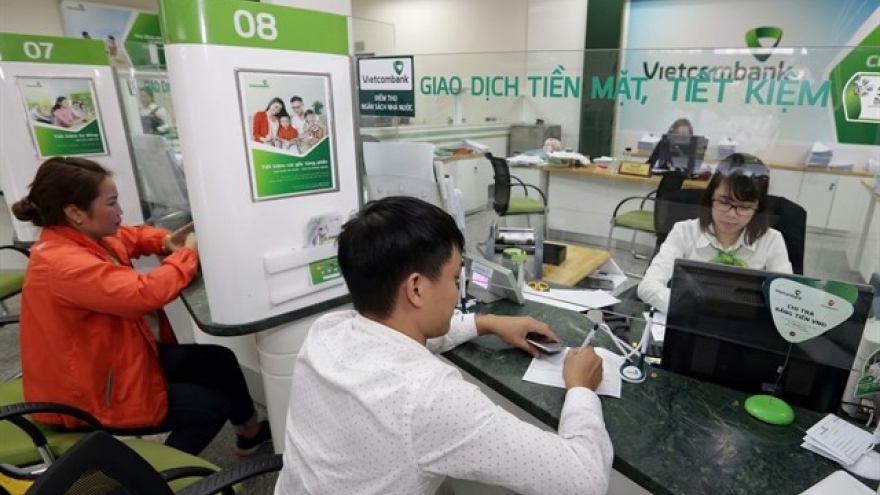Banks face anger over lack of dividend payment
Despite earning decent profits, some commercial banks have opted not to pay any dividends, prompting frustration among shareholders at recent annual general meetings, reported Thanh Nien newspaper.
 |
| A bank teller counts Vietnamese banknotes (Photo: Saigon Times) |
Many shareholders of Saigon Thuong Tin Commercial Joint Stock Bank (Sacombank) voiced their objection to the fact that Sacombank had decided not to pay a dividend for 2018, though the lender had reported a net profit of over VND1.7 trillion (US$73 million), marking a year-on-year rise of 51.5%. The bank is expected to earn a net profit of VND2.65 trillion (US$113 million) this year.
Sacombank’s chairman Duong Cong Minh and a representative from the State Bank of Vietnam (SBV) explained that the bank is carrying out a restructuring plan, so the profits have to be retained.
However, its shareholders were not satisfied with the explanation. The lender has not made any dividend payments since 2015.
Under the restructuring plan, Sacombank is required to make provisions when it generates a profit. Therefore, shareholders can only receive dividends once the plan is complete, or they can sell their own shares when prices edge up.
Meanwhile, the annual general meeting of Vietnam Export Import Bank (Eximbank), which was expected to take place on April 26, was cancelled because the shareholders who had come for the meeting only represented a combined stake of 57.54% compared with the required 65%.
Preparatory documents for the meeting revealed that the undistributed profits of Eximbank had amounted to over VND704 billion (US$30 million) as of late 2018. However, the bank’s board of directors did not intend to make any dividend payments for 2018.
The board cited a circular from SBV as saying that the central bank allows credit institutions to extend the terms for special bonds --- previously issued to swap for bad debt --- without dividend payments to create a source of non-performing loan resettlements until the bonds are paid.
The central bank approved Eximbank’s original and extension periods, totaling 10 years since the date of the issuance of special bonds prior to 2015. As of late 2018, these bonds were not fully paid off, so the bank decided not to make any dividend payments.
Some other banks plan to make dividend payments with shares. For example, the Asia Commercial Bank (ACB) will pay a share dividend of 30%, while using some VND100 billion from the staff welfare fund to buy back its own shares.
Shareholders of HCMC Development Joint Stock Commercial Bank (HDBank) are expected to receive dividend and bonus shares at a combined 30%.
Saigon-Hanoi Commercial Bank (SHB) will issue some 252.6 million shares valued at VND2.52 trillion to pay dividends for 2017 and 2018.
Other banks, such as the Bank for Investment and Development of Vietnam (BIDV), the Vietnam Bank for Industry and Trade (VietinBank) and the Bank for Foreign Trade of Vietnam (Vietcombank), sought permission from the Finance Ministry to retain their profits and pay dividends in shares to raise their charter capital.
At the annual general meeting in March, the shareholders of Vietnam International Bank (VIB) approved a dividend of 26.5% for 2019, including 5.5% in cash and the rest in shares. VIB is one of the few banks that have decided to pay dividends in cash this year.



